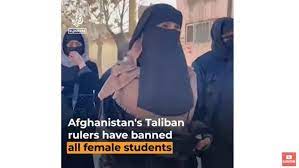
STRATEGIC ASSESSMENT. The support for Ganjar Pranowo has risen by six points since he was officially nominated for president by the ruling Indonesian Democratic Party of Struggle, or PDI-P, last month, while his two main contenders begin to struggle nine months into the election, according to a new survey.
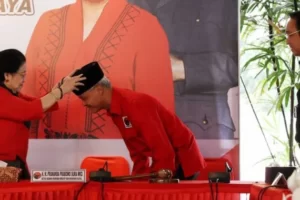
The support for Ganjar stands at 39.2 percent, up from 33.2 percent in April, according to the public opinion survey by Saiful Mujani Research and Consulting (SMRC) published on Friday. In a hypothetical race of three major candidates, the Central Java governor extended his lead over Defense Minister Prabowo Subianto (32.1 percent) and former Jakarta Governor Anies Baswedan (19.7 percent).
A group of President Jokowi’s supporters hosted a gathering, known as Musyawarah Rakyat (Peoples Conference), and proposed three presidential nominees for Jokowi to endorse: Central Java Governor Ganjar Pranowo, Defense Minister and Gerindra Party Chair Prabowo Subianto, and Economic Affairs Coordinating Minister and Golkar Party Chair Airlangga Hartarto. Jokowi said he would wait until political parties formalize coalitions before recommending the nominees.
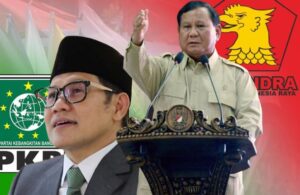
In response to protests from rights groups fearing a lack of women’s representation in the legislature, the General Elections Commission (KPU) has undone a recent rule change that would have decreased the minimum number of women candidates in electoral districts under some circumstances.
The commission returned to its previous policy, in place during the 2019 legislative election, of rounding up the minimum number of women candidates in an electoral district if the calculation resulted in a decimal, revoking a recently passed rule that involved rounding down in some cases.
As talks continue over who will be Prabowo Subianto’s running mate in the 2024 presidential election, the Gerindra Party said that National Awakening Party (PKB) chair Muhaimin Iskandar was still the frontrunner for the slot, while the Golkar Party aimed to nominate chairman Airlangga Hartarto for the position.
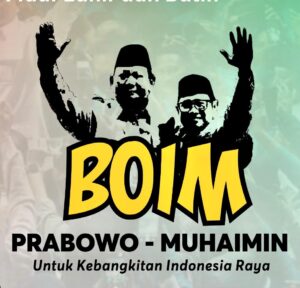
“The ‘golden ticket’ is still in the hands of Muhaimin,” Gerindra secretary-general Ahmad Muzani told reporters at the General Elections Commission (KPU) headquarters on Saturday, when the party registered its legislative candidates with the KPU.
Muzani underlined that as the PKB was so far the only party that had formalized its support for Gerindra, Muhaimin would be more than deserving to be the Gerindra chairman’s running mate.
In an event held by a group of supporters, President Jokowi stated that he had no objections to a number of ministers running for legislators or presidential candidates. He did, however, remind them of their primary responsibilities as ministers. He will closely watch over his ministers, and if the election affects how they are performing, he will not hesitate to remove them.
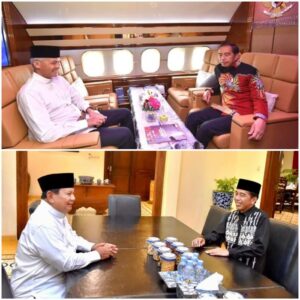
United Indonesia (Perindo) Party Chair Hary Tanoesoedibjo met with President Joko Widodo at the Palace with the Indonesian Chinese Clan Social Association (PSMTI). According to Harry, at this meeting, PSMTI expressed its appreciation to Jokowi for his tremendous accomplishments that have allowed the Indonesian economy to thrive despite various challenges, including the pandemic. Harry said PSMTI would back whoever Jokowi nominated as his presidential candidate.
United Development Party Advisory Council Chair M. Romahurmuziy said there have been talks about proposing Istiqlal Mosque Grand Imam Nasaruddin Umar as Ganjar Pranowo’s running mate. He said Nasaruddin fulfills all the requirements, including his moderate religious views and membership with the Nahdlatul Ulama leadership (Rais Syuriah).

Defense Minister Prabowo Subianto is shaping up as the candidate to beat in the presidential race on Feb. 14, 2024, and is no longer the dark horse of earlier surveys.
With the field narrowing down to three frontrunners, electability surveys put him either in the lead or in second place behind Central Java Governor Ganjar Pranowo. Prabowo’s rise comes mostly at the expense of former Jakarta governor Anies Baswedan, who is now struggling in third place in almost all surveys.
If voters seem to be switching their allegiances, so are the political parties that have the power to nominate candidates. The Golkar Party, currently the second-largest party and which has no strong candidate of its own, is contemplating backing Prabowo’s nomination.
Nasaruddin said he was not aware that he was being considered as Ganjar’s running mate. He said he had no political ambition, and that his goal is to bring peace to Indonesia.
Indonesian politics appears to have increasingly become a family affair, with relatives of political elites and sitting governors, mayors, and Cabinet ministers running for seats at the House of Representatives, cementing the reign of political dynasties in the country.
At least three political heirs have been confirmed to be running in the upcoming legislative race, including Diah Pikatan Orissa Putri Hapsari, known as Pinka Hapsari, the daughter of the House Speaker Puan Maharani and the granddaughter of the ruling Indonesian Democratic Party of Struggle (PDI-P) Chair Megawati Soekarnoputri.

According to, Hening Wikan, SMERU Research Institute and Dias Prasongko, Universitas Gadjah Mada on East Asia Forum, Indonesia, the fourth most populous nation and third-largest democracy, is scheduled to hold its presidential and legislative elections on 14 February 2024. Though the poll is set for next year, the hype has already crept up, primarily because campaigning will begin during 2023.
The long-awaited elections will also be critical in the fight for women’s political issues. During the last election in 2019, the number of women elected to national parliament reached 20.9 per cent. This is the highest proportion of female legislators elected in Indonesia since its New Order era.
This breakthrough appears to be the payoff from women’s activists’ struggle to make the 30 per cent female candidate quota mandatory. It was followed by the implementation of the ‘zipper system’ — which aims to avoid placing female candidates at the bottom of the electoral list, where voters tend to overlook them. Though progress is happening gradually, these affirmative action policies appear to be pushing the fight to promote women’s representation.
Yet questions remains about women’s substantive representation. Despite efforts to increase demand for nominating female candidates within parties, existing affirmative policies have yet to address structural barriers to women’s participation in politics.




